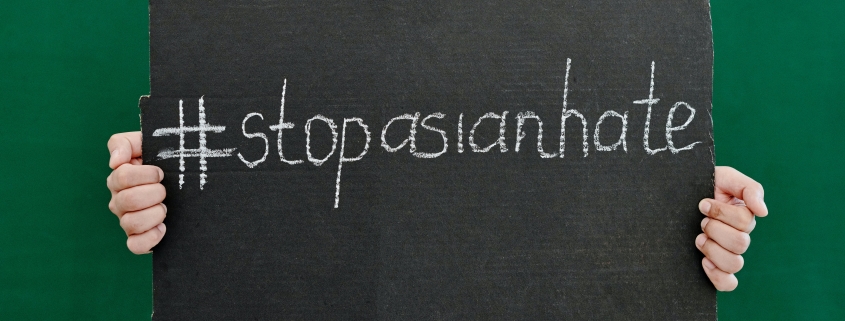Why We as Asian Americans Need to Step Up and Speak Out About Important Issues More Often
As seen in the San Diego Union-Tribune.
My heart was racing, and my chest felt tight. Blood was rushing to my face, and I was feeling the urge to flee. That could be the typical reaction people feel when they are faced with a physical threat. Instead, I was having these sensations because I was in a heated conversation over a text thread with an Asian American friend of mine. He was accusing me of lacking vocal support for various AAPI causes and of actually being against Asian Americans.
I had to pause, take a deep breath and calm down. I knew that I was a passionate advocate for Asian Americans. I was not going to allow an electronic conversation devoid of context strip me of my values and merit. I had served as the president of a Vietnamese American youth organization. I had volunteered at Asian American cultural festivals. And I advocate for Asian American causes like voting access and Vietnamese language courses at San Diego State University.
I wondered why I was having this reaction. Why was it so hard for me to stand up for myself that I had an actual physical aversion to it? I’ve always been one to participate, to volunteer and to support my convictions. But when it comes to being vocal and speaking out, there was, and still is, a fear that I am not the right person to be speaking. I’m worried that I’ll rock the boat and disturb those around me. I’m concerned that I will stand out and attract unwanted attention. Uncertainty has led to my hesitancy and eventually to a silencing of my voice. It’s a trait that I think is fairly common in the Asian American community in the U.S.
My experience in our Asian cultures leads me to believe that we have an established decorum regarding behavior and social hierarchies that dictate whom we listen to and trust. We revere politicians, doctors, engineers, scientists and business people because we believe in their knowledge and their success. People who challenge that decorum or speak as an authority without the expected credentials often experience derision, judgment and unwanted attention to themselves and their families. This fear of reprisal is often enough to keep us silent.
Recently, however, I have felt the needed to be more vocal. Not only myself, but Asian Americans in general need to step up and speak out about issues important to our ethnic group as a whole. We rarely tell anyone about the issues important to us, like how Asian Americans are underrepresented in corporate management and at the executive level, even in companies comprised of a majority of Asians. Or talk about how Asian American hate crimes are spiking nationally. These hate crimes are not isolated in specific cities — they are underreported because of cultural tendencies to keep our “heads down” and out of the spotlight, leading to fewer police reports.
Major Asian American history is being washed over because we aren’t discussing it enough. Before the modern, COVID-19-related anti-Asian attacks, there was Vincent Chin. He was a Chinese American immigrant murdered because he was perceived to be a foreign threat to American auto workers. The Ku Klux Klan attacked Vietnamese Americans and their shrimping boats in the South because they were a perceived threat to local fishermen. After the attacks on 9/11, Sikhs were targeted because of their dark skin, turbans and beards. Asian American hate crimes aren’t new. They’ve just been lost and forgotten because we aren’t talking about them.
Asian American voices shouldn’t be heard only when we are feeling like our lives are being threatened. We should be vocal long before and long after the news cameras turn away from us to focus on the next big headline. For us to build coalitions and gain understanding in American society, we have to join the conversation. Standing on the sidelines and waiting for things to get dire is unacceptable. The time is now.
These days, I still think really hard about the things I want to say. The gears churn as I consider who might be offended or if what I’m thinking is relevant to the conversation. I just have to keep reminding myself when I’m ready to say something, that what I have to say is, in fact, worth saying.
Author:
Michael Thai
Digital Media Specialist, IPS
Michael Thai is a Digital Media Specialist for the Institute for Public Strategies, a Southern California-based nonprofit that works alongside communities to build power, challenge systems of inequity, protect health and improve quality of life.



